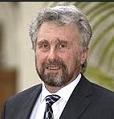Tributes are being paid to Michael Wilkes, former Lord Mayor of Birmingham, who died recently and Birmingham’s council cabinet held a minute’s silence in his memory.
 Justice should be done to his radical constructive thinking, lamentably ignored by the council, which included an emphasis on the restoration of equitable and redistributive taxation, the living wage, the plugging of many loopholes for tax avoidance, the undertaking of thorough corporate reform and the imperative to wind back globalisation.
Justice should be done to his radical constructive thinking, lamentably ignored by the council, which included an emphasis on the restoration of equitable and redistributive taxation, the living wage, the plugging of many loopholes for tax avoidance, the undertaking of thorough corporate reform and the imperative to wind back globalisation.
This thinking was informed by his work as professor of economics at the University of Birmingham – the youngest to have achieved this position the writer has been told.
A citizenry of good intent and a new discipline, socionomics
Wilkes advocated a new discipline, socionomics, to replace the “desiccated, manipulated, disloyal, extractive and highly unequal economy that has been allowed, and – by some administrations – encouraged”.
He acknowledged that this would be no easy task: the social and moral education needed to produce a citizenry of good intent which would make the socioeconomic system work properly and sustain it for future generations and wind back globalisation will take longer and involve people and organisations and other countries.
Practical steps that could be taken immediately:
- the restoration of equitable and redistributive taxation,
- the introduction of living wages,
- the plugging of many loopholes for tax avoidance,
- the undertaking of thorough corporate reform
- and the recreation of an active, interventionist and self confident public sector.
A Birmingham Municipal Bank, keeping money and jobs in the city could also be the means through which ‘Brummie Bonds’ could be issued
In the council chamber and in the public press he proposed the re-establishment of the city’s Municipal Bank – suggesting its relocation in its old headquarters on Broad Street, which had been re-acquired by the council – and asking: “Where better to begin a new Municipal Bank offering fair and consistent rates for saving, encouraging thrift (as per the mottoes inside) and discouraging the profligacy so rampant in today’s society? A Birmingham Municipal Bank could keep both money and jobs in the city and be the means through which the oft-suggested ‘Brummie Bonds’ could be issued to allow ordinary folk to support civic projects . . . while offering a secure return”.
He recognised that the major banks – whose defects he outlined well before the 2008 failure – would attempt to stifle such an initiative with anti-competitive practices
Optimistically he said, “I’m sure that these could be overcome and they would be far better to start mending their ways. Indeed Birmingham could lead the way again as it did in the early days of commercial banking”.
“These measures would represent leadership in its finest form. This, and the promotion of the concept of stewardship in place of the present self serving forms of ‘leadership”.
In another blog he pointed out that after decades of under-investment we need (infrastructure work) in energy, transport, public and heritage buildings and right across the board – we would generate business to firms and encourage them to invest, create or save jobs, keep more of the money at home and provide a better quality infrastructure and the much needed energy security along with stable prices in the future if cartel behaviour can be regulated or re-nationalised away, adding “To my mind that’s a whole lot better and wiser than, in effect, saying: ‘Here’s £100, dash down the shopping centre and spend it on imports’ “.
Economic recessions are about a serious and sustained shortage of aggregate demand – and it matters what makes up that demand
The less expenditure frittered away on fashionable gadgets and bric-a-brac and which leaks out on imports, and the more of it invested in improvements in the nation’s infrastructure and the environment, securing productive jobs and supporting manufacturing, the better.
In the longer term, a restored and re-balanced economy, achieved by these Keynesian means, will provide the firmest foundation for the restoration of future public finances and the resumption of prudent and sustainable ways of living.
–


